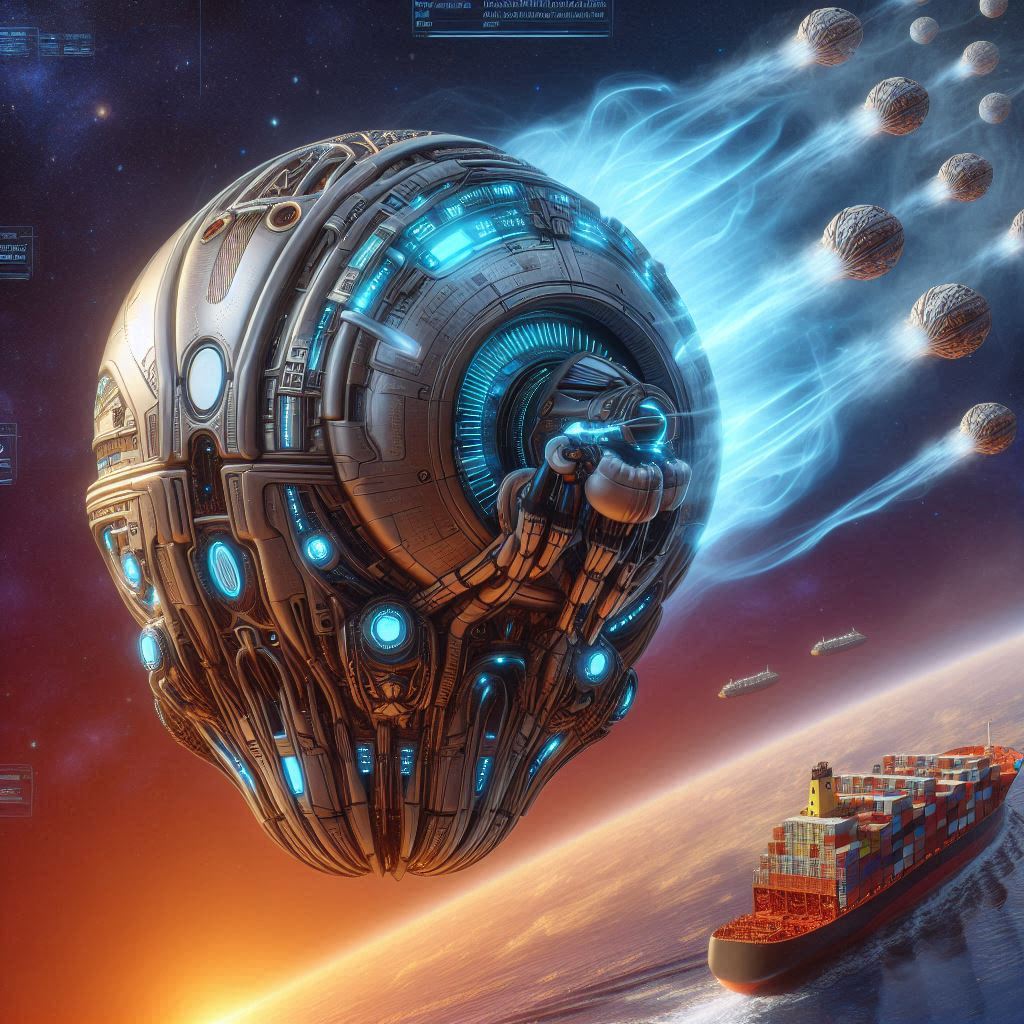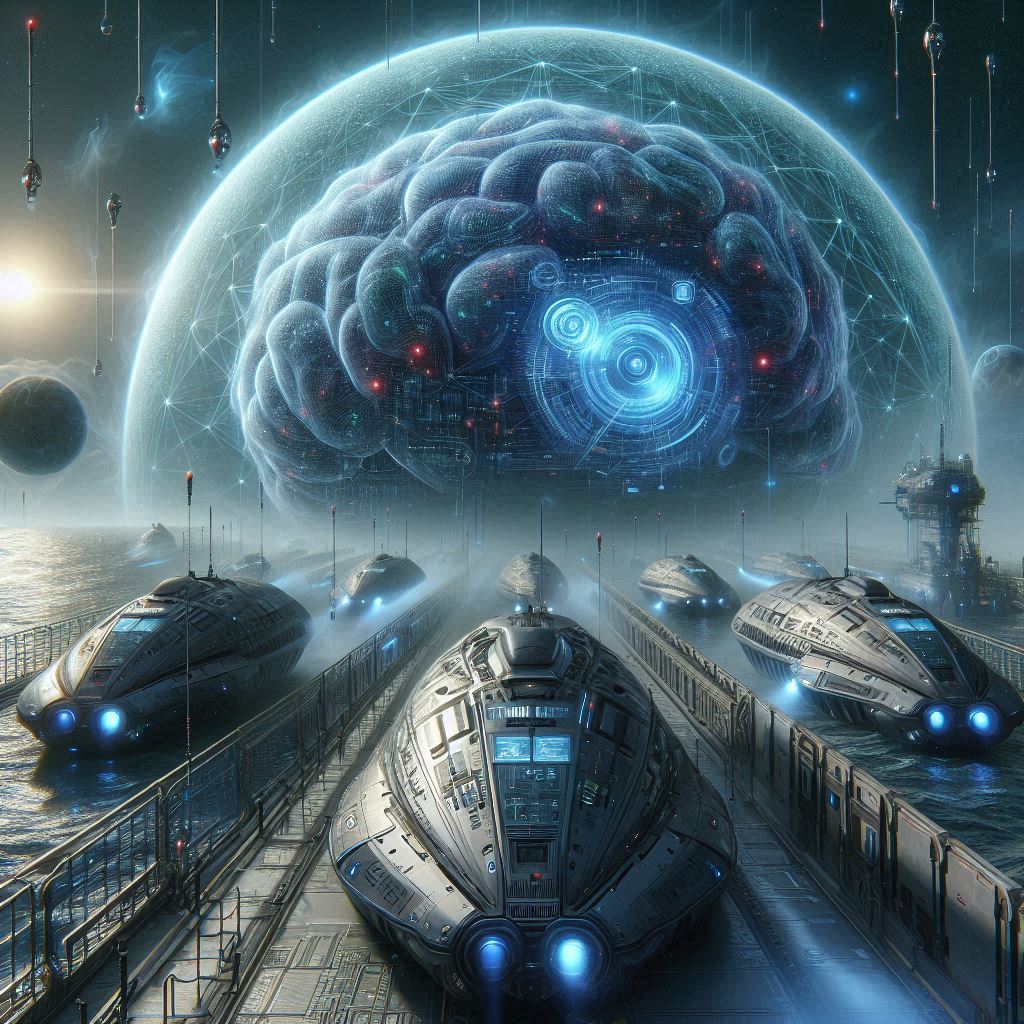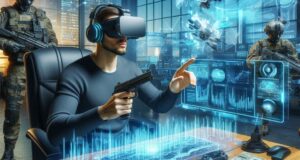Picture a fleet of swift ships, each captained not by fallible men, but by sentient stars — autonomous, luminous, endlessly calculating.
This is the vision of AI-Governed Prop Pods: small, nimble trading teams governed by advanced artificial intelligence, granted full autonomous decision authority within the larger cosmos of financial markets.

Each pod operates as a self-contained ecosystem — a tribe, a cell, a miniature republic — where AI does not simply assist human traders but leads, strategizes, adjusts, and evolves.
Within these pods, decisions on risk, execution, and market engagement are dynamically optimized, informed by oceans of real-time data, historical nuance, and emergent market behavior.
In the coming era, future prop firms will no longer be monolithic, lumbering giants. They will be dynamic archipelagos of such pods — decentralized, resilient, adaptive — each one a star in a constellation of living intelligence.
Objections :
But even as this shimmering horizon unfolds, skeptics raise sharp and urgent questions:
- Objection 1: “How can we entrust critical financial decisions to AI, which may lack the nuanced judgment required in chaotic or black-swan market conditions?”
- Objection 2: “Will the autonomy of these pods lead to rogue behaviors, with AIs competing or clashing destructively within or across firms?”
- Objection 3: “Does this model reduce human traders to mere passengers on ships they no longer steer, stripping trading of its craft, its art, its soul?”
These are not mere shadows; they are mountains of concern, demanding serious reckoning.

Answers:
The architects of AI-Governed Prop Pods respond with clear-eyed resolve:
- Response 1: Advanced AI in these pods is designed not to mimic human folly, but to augment human prudence. Decision trees are enriched by scenario modeling, stress-testing, and ethical frameworks far more intricate than raw instinct alone could achieve.
- Response 2: Autonomy is not anarchy. Governance protocols — encoded through smart contracts, compliance matrices, and supervisory algorithms — ensure that pods act within defined strategic boundaries, just as planets orbit predictably within gravitational fields.
- Response 3: Far from eliminating human traders, this model elevates them. Human oversight remains vital — setting mission parameters, refining AI learning objectives, and intervening when unanticipated dimensions arise. It is not abdication, but evolution: traders as generals, not mere foot soldiers.
Benefits :
The rewards of AI-Governed Prop Pods shimmer like a golden harvest:
- Speed and Precision: AI enables decisions at speeds no human can match, exploiting opportunities measured in milliseconds with surgical precision.
- Adaptability: Each pod can specialize in different asset classes, strategies, or volatility regimes, learning and pivoting faster than traditional centralized desks.
- Risk Containment: Decentralized pod structures prevent systemic failure. If one pod falters, the ecosystem absorbs the shock, preserving the vitality of the larger firm.
- Innovation: With each pod functioning as an experimental laboratory, future prop firms can foster continuous strategy evolution without jeopardizing core operations.
- Scalability: Firms can grow not by simply adding more human traders — with all their limitations — but by spawning new pods, each tailored to specific markets or mandates.
AI-Governed Prop Pods are like the honeycomb of a beehive — countless cells, each buzzing with intelligent labor, contributing to a structure far greater than the sum of its parts.
They are the caravans of ancient Silk Roads, each carrying treasures across unknown lands, guided not by a single emperor but by countless merchant-kings, wise in their own spheres.
It is the vision of Ibn Battuta reborn as algorithm — charting unknown financial geographies with unerring maps of machine-born wisdom.
Future prop firms built on this model will not be castles with one vulnerable gate, but cities of interwoven fortresses — flexible, fierce, and fundamentally free.
AI-Governed Prop Pods are not the death of the human trader; they are the forge that refines him.
They are not the end of judgment; they are its magnification.
They are not chaos unleashed; they are order liberated, guided by the twin stars of intelligence and autonomy.
In the coming decades, future prop firms will look back on the age of centralized trading floors the way modern navigators look at maps drawn on parchment — noble, yes, but quaint.
In the age of AI-Governed Prop Pods, the market is not a battlefield of brute force; it becomes a canvas of orchestration — and only those who dare to trust the dance of human and machine together shall truly rule its horizons.




